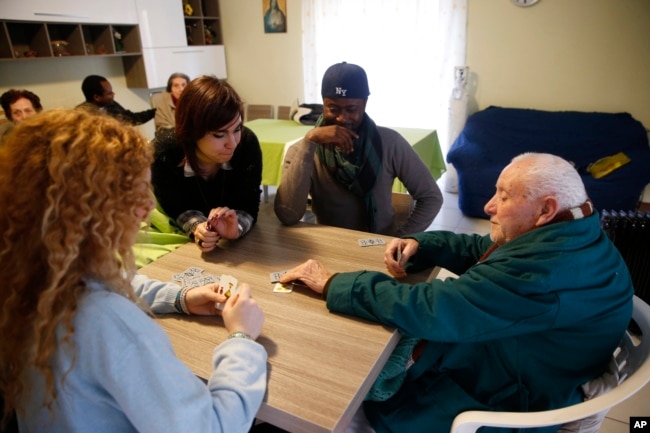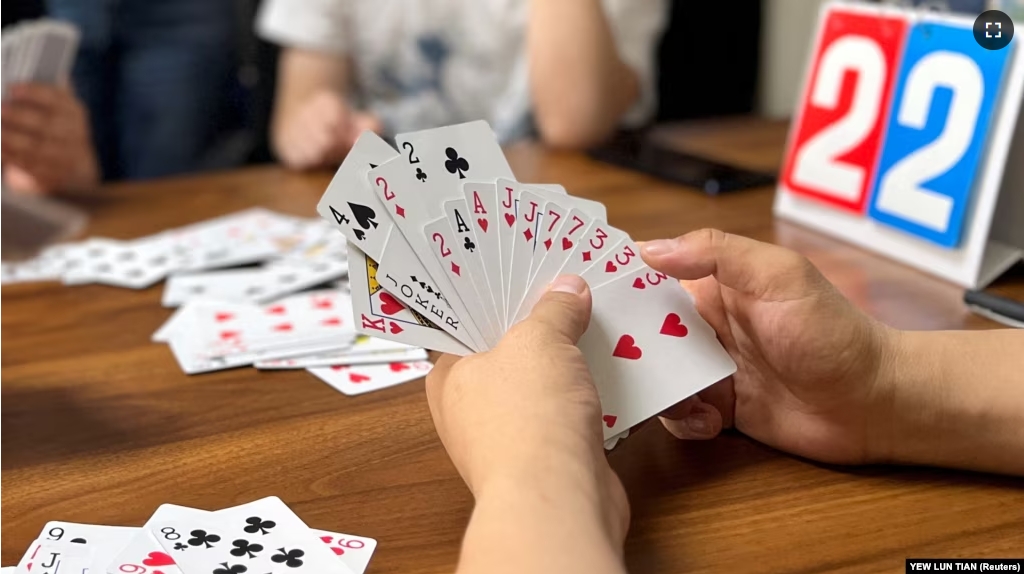And now, Words and Their Stories, from VOA Learning English.
Playing cards is a popular pastime for people of all ages. Some games are easy, while others are complex. And people of all walks of life play cards. A set of playing cards is called a deck. A deck of cards is not costly and can be bought almost anywhere.
With one deck of 52 cards, you can play many different games. Some of the games include poker, blackjack, bridge, rummy, 500, snap, hearts, and crazy eights … just to name a few.
The deck of cards also gives the English language many idioms. Today we will talk about a few of them.
To win at many card games, you must keep your cards hidden from the other players. In many games, the cards you are dealt and play with are called your “hand.” If your opponents know your hand, they can easily beat you. Some players keep their cards hidden by holding them to their chest.

In life, you might need to keep some parts of a plan hidden or secret for them to succeed. You might need to keep your cards close to your chest. This idiom means to keep your plans, intentions or methods secret.
However, with most card games, players must show their cards to the other players at some point, sometimes at the end of the game.
This gives us two similar idioms – to show your hand and to lay your cards on the table.
As an idiom, to show your hand or your cards means to tell people your plans or intentions that you had kept hidden.
The same is true of laying your cards on the table. In many card games, the players must show their cards by placing them face up on the table for everyone to see. When we put our cards on the table, we show something that we have kept hidden. These can be things like our reasons for doing something, our intentions or our opinions.
Now, in a game of cards, luck or chance plays an important part. You must play with the cards you are dealt. This is the case in life, too. Not everything is a choice. Sometimes we must deal with things that are out of our control. We must play with the cards we are dealt. We can also say play the hand we are dealt.
So, luck is part of the game. We cannot know or predict the cards we are dealt. But sometimes other players cheat. They can do this by stacking the deck. When you stack the deck, you add cards to the deck that will help you win. This gives you an unfair advantage.
In life, we can sometimes feel that things are stacked against us. This means that no matter how hard we try, we still struggle. We feel as though life has dealt us a bad hand, and we must struggle and fight to gain anything at all.
For example, if the deck is stacked against you, the odds are not in your favor. You might have to struggle against all odds to succeed.
These are just a few of the idioms English gets from a deck of cards. There are many more.
But that’s all the time we have today. Keep listening to Words and Their Stories to learn more!
Until next time, I’m Anna Matteo.
Anna Matteo wrote this lesson for VOA Learning English.
_____________________________________________
Words in This Story
pastime –n. an activity done for enjoyment in one’s free time
idiom –n. an expression in language that has a meaning different from the words’ literal meaning
intention –n. what someone means to do but which might not be clear from what they say or do
stack –v. to place on thing on top of another
advantage –n. a positive or good result that is gained from an action
odds –n. (pl.) the likelihood that something will or will not happen
favor –n. something that happens to help or support a person
